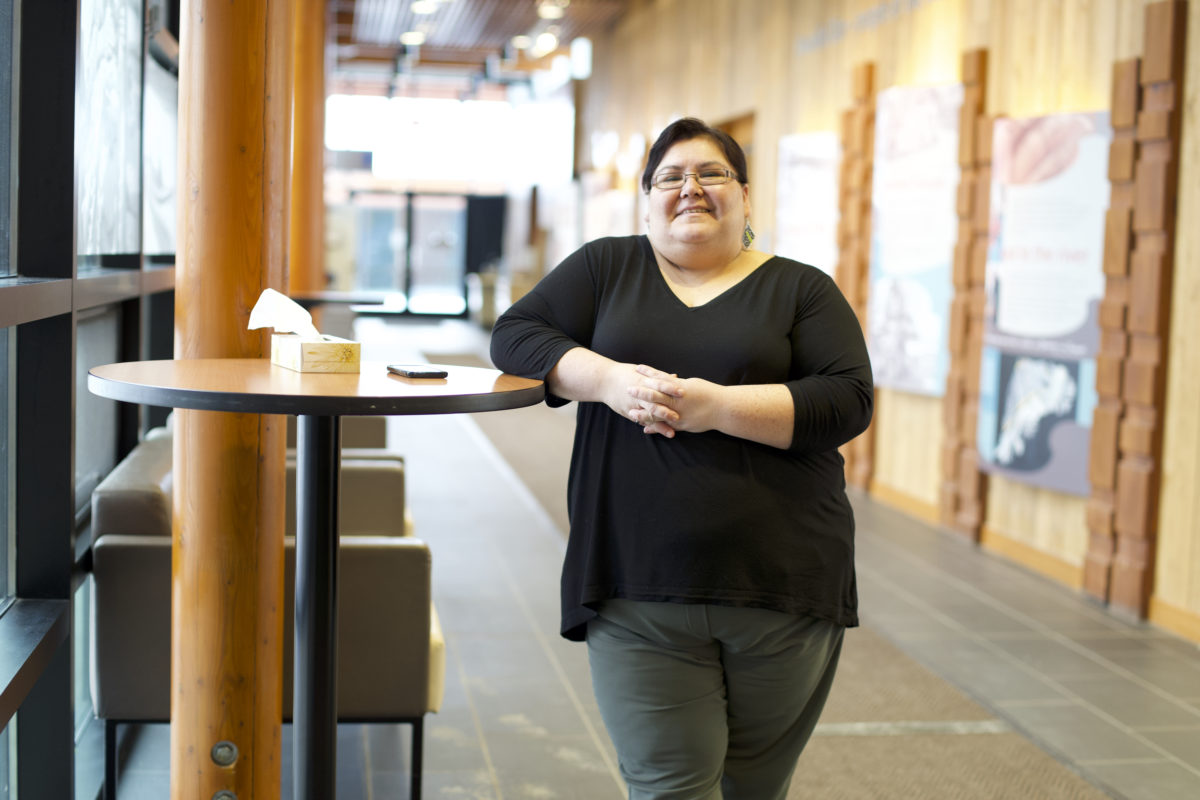
In a Nova Scotia research lab, the last hope for an ancient fish species
Racing against time, dwindling habitat and warming waters, scientists are trying to give this little-known...
This is part four of Land Crafted: a five-part video series exploring entrepreneurship in northern Canada.
Smoke swirls up from the abalone shell in Amanda Baton’s hand. It hangs in the sunlit living room as she walks through the space, purifying it with the burning sage. The ritual aspect of smudging, as much as any properties of the smoke, has helped her stay sober following years of struggling with addiction — but today, an addictions counsellor herself, she can’t practice smudging in her Yellowknife, N.W.T., office.
“We’re not allowed to have anything that can smoke, that has that scent,” she says. “Some people think it’s too overwhelming; they have a sensitivity to it.”
On the other side of Great Slave Lake, in Hay River, Misty Ireland has been working on a solution to that problem for years. Jumping from hotel to hotel, hospital to hospital as her brother and father fell ill, Ireland was frustrated at her inability to smudge in those spaces. “No smoking” signs are everywhere today, and the rule extends to sage and other plants burned for ceremonies.
She started applying her knowledge of essential oils to producing sprays that could mimic some of the scents she couldn’t produce the traditional way.
“Based on stories that elders have shared with me, I started to develop some sprays that we could use when we can’t burn a smudge,” she says.

Misty Ireland’s business, Dene Roots, is taking off — bringing Dene tradition with it. Photo: Jimmy Thomson
The hobby soon became a business, Dene Roots, with the blessing of elders in her community. That support was essential to Ireland, who is sensitive to the tradition of not selling medicines.
That practice has become common, especially through platforms such as Etsy, where stores with names like “ModernVoodooShop” with no Indigenous ownership sell products associated with Indigenous traditional medicine like bundles of sage, cedar and sweetgrass. Ireland is a rare instance of an Indigenous person participating in that economy, in part because of the stigma around commerce.
Her mother, Margaret Ireland, dismisses outright the notion that Indigenous people have not traditionally participated in trade, pointing to the extensive trade routes throughout North America, and to the custom of offering gifts to healers.
“I know in the past these things have to be given, but it’s not just totally given,” she says. “You do need to pay that person something. And it’s usually tobacco or whatever you have on hand at the time.”
Ireland’s products have evolved beyond smudging spray into other essential-oil based scents intended to re-create the effect of being outside or to elicit particular moods.
Business is brisk. Driving across the frozen Hay River to the K’atl’odeeche First Nation reserve, Ireland is brimming with excitement. In the backseat of her car are 100 bottles of “all spruced up” spray, a scent she designed to replicate time spent outdoors or at a cabin, chopping wood. It’s her biggest order yet.
“We live in a really fast-paced society, and a lot of people live in busy bustling communities, towns, cities full of cement and they don’t get to live amongst the wild trees,” she says.
She believes helping people reconnect to their surroundings and to each other could start with something as simple as a scent.
“And it’s just the beginning.”
Get the inside scoop on The Narwhal’s environment and climate reporting by signing up for our free newsletter. On March 17, federal Conservative Leader Pierre Poilievre...
Continue reading
Racing against time, dwindling habitat and warming waters, scientists are trying to give this little-known...

From investigative reporting to stunning photography, we’ve been recognized with four 2024 CAJ Awards nods...

The Narwhal is expanding its reach on video platforms like YouTube and TikTok. First up?...
